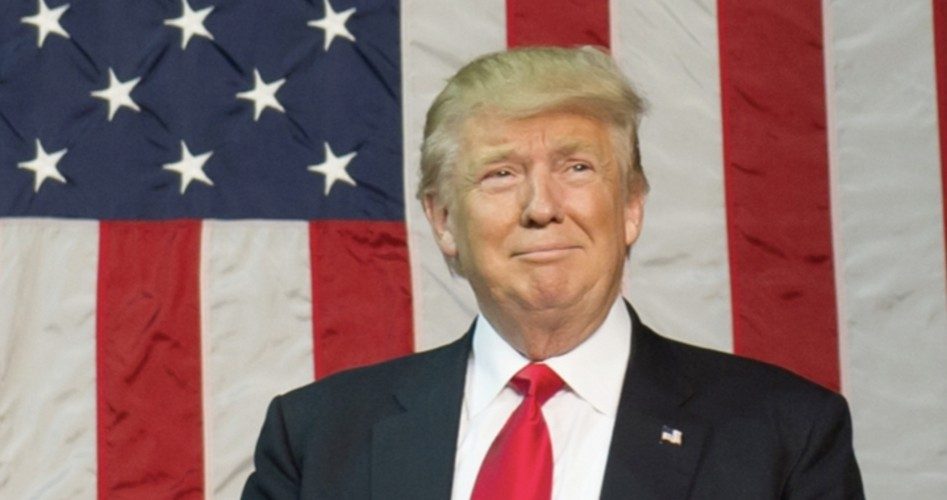
During his victory celebrations following the Senate’s vote to acquit him of wrongdoing, President Donald Trump apologized: first for his own shortcomings, second to the American people, and finally, to his family. These apologies revealed a side of the president the mainstream media rarely presents.
Near the end of his remarks at Thursday’s Prayer Breakfast at the Washington Hilton, Trump said, “I’m sorry. I apologize. I’m trying to learn. It’s not easy. When they impeach you for nothing and then you’re supposed to like them, it’s not easy, folks. I do my best.”
This is where the president presently is on his journey of faith. He is referring to Jesus’ demand in His Sermon on the Mount, recorded in Matthew, Chapter 5, where the Savior said: “You have heard that it was said, ‘Love your neighbor and hate your enemy.’ But I tell you, love your enemies and pray for those who persecute you, that you may be sons of your Father in heaven.” Jesus didn’t say it would be easy, just that it should be done.
Later that same day, in the Rose Garden, Trump apologized to the American people: “I want to say again to the American people how profoundly sorry I am for what I said and did to trigger these events, and the great burden they have imposed on the Congress and the American people.”
And he apologized to his family:
I just want to thank my family for sticking through it. This was not part of the deal.… I didn’t know I was going to have to run again and again and again, every single week, but they stuck with me.
Instead of focusing on the positives of Trump’s speeches, the media focused on Trump calling out of his enemies, such as pointing out what Trump said to Arthur Brooks. At the National Prayer Breakfast early Thursday Arthur Brooks, the former head of the American Enterprise Institute, spoke ahead of Trump. He referred to the present “crisis of contempt and polarization” and urged his listeners, including the president, to “love your enemies.”
The media happily reported that Trump succumbed to the temptation to respond as the world would respond. Said Trump: “I don’t know if I agree with you, [Arthur]. I don’t like people who use their faith as justification for doing what they know is wrong. Nor do I like people who say ‘I pray for you’ when you know that is not so. So many people have been hurt, and we can’t let that go.” This was a clear and unmistakable reference to House Speaker Nancy Pelosi’s earlier remarks that she often prays for the president. Pelosi was sitting at the head table during Trump’s remarks.
The media happily reported on Trump’s “attacks” on Pelosi and Adam Schiff for their roles in the impeachment sham. Said Trump, “These people are vicious. Adam Schiff is a vicious, horrible person. Nancy Pelosi is a horrible person. She wanted to impeach [me] a long time ago. She doesn’t pray for the president. She may pray but she prays for the opposite. But I doubt she prays at all.”
Donald Trump is a human man, a sinful man, but the man whom God has chosen for this time and place. When history is faithfully recorded about the tumultuous events of the present time, two things will stand out: The president has successfully exposed the mainstream media as being nothing more than a mouthpiece for those who would destroy the Republic; and he has successfully nominated judges who hold the originalist view of the Founders when they crafted the Constitution. Those two accomplishments will have generational impact in the freedom fight going on behind the scenes of today’s present events.
Image: Screenshot of donaldjtrump.com
An Ivy League graduate and former investment advisor, Bob is a regular contributor to The New American, primarily on economics and politics. He can be reached at [email protected].



